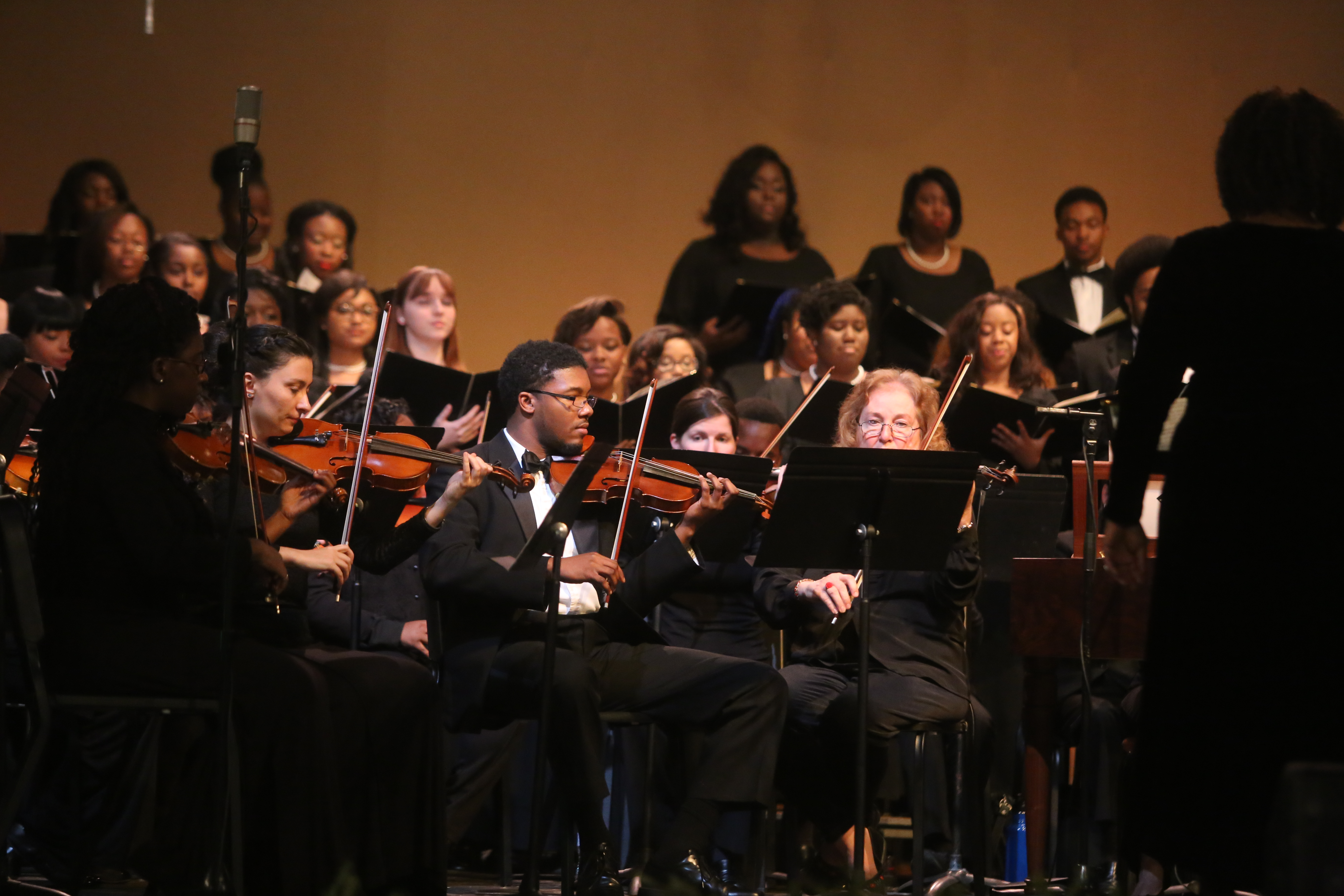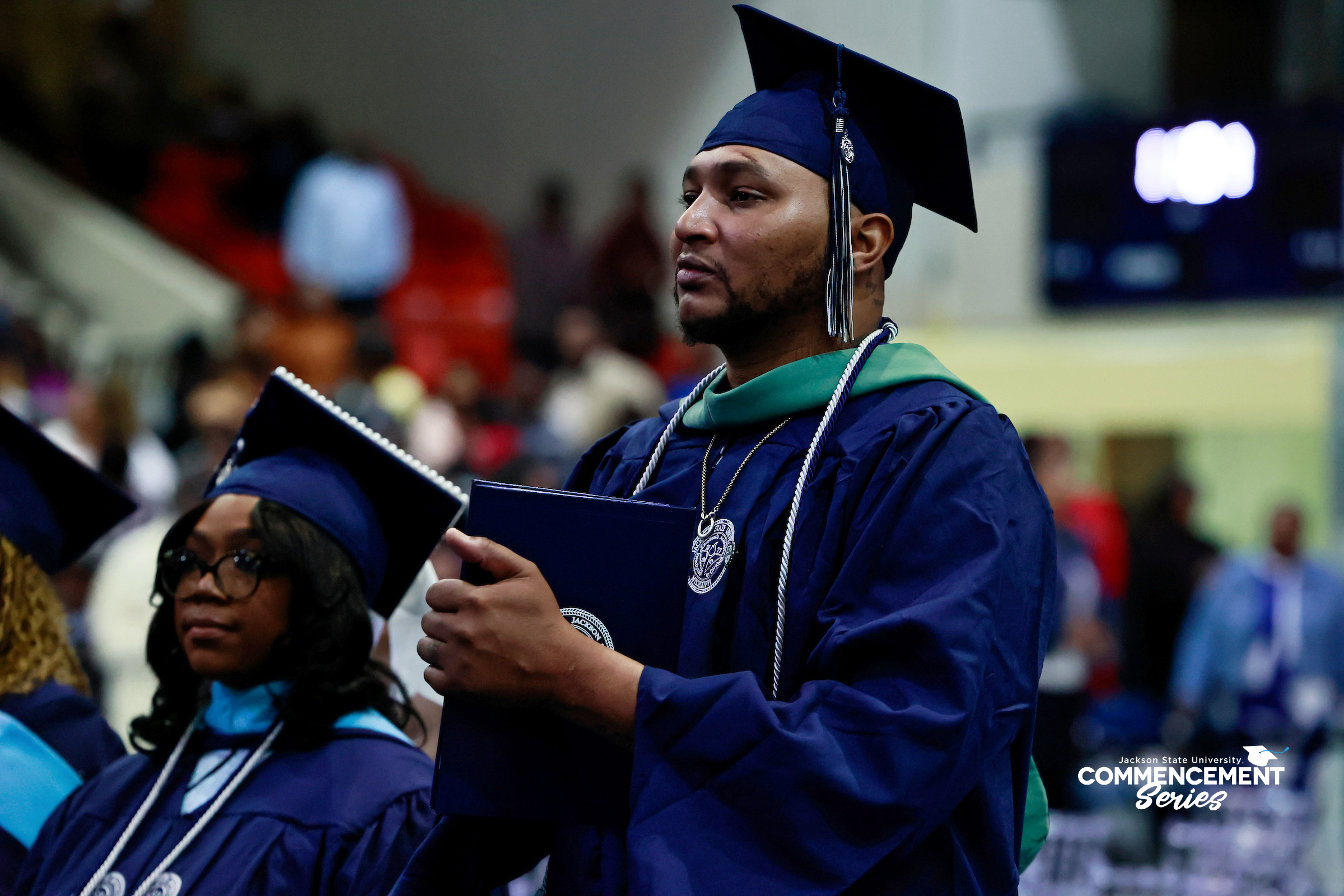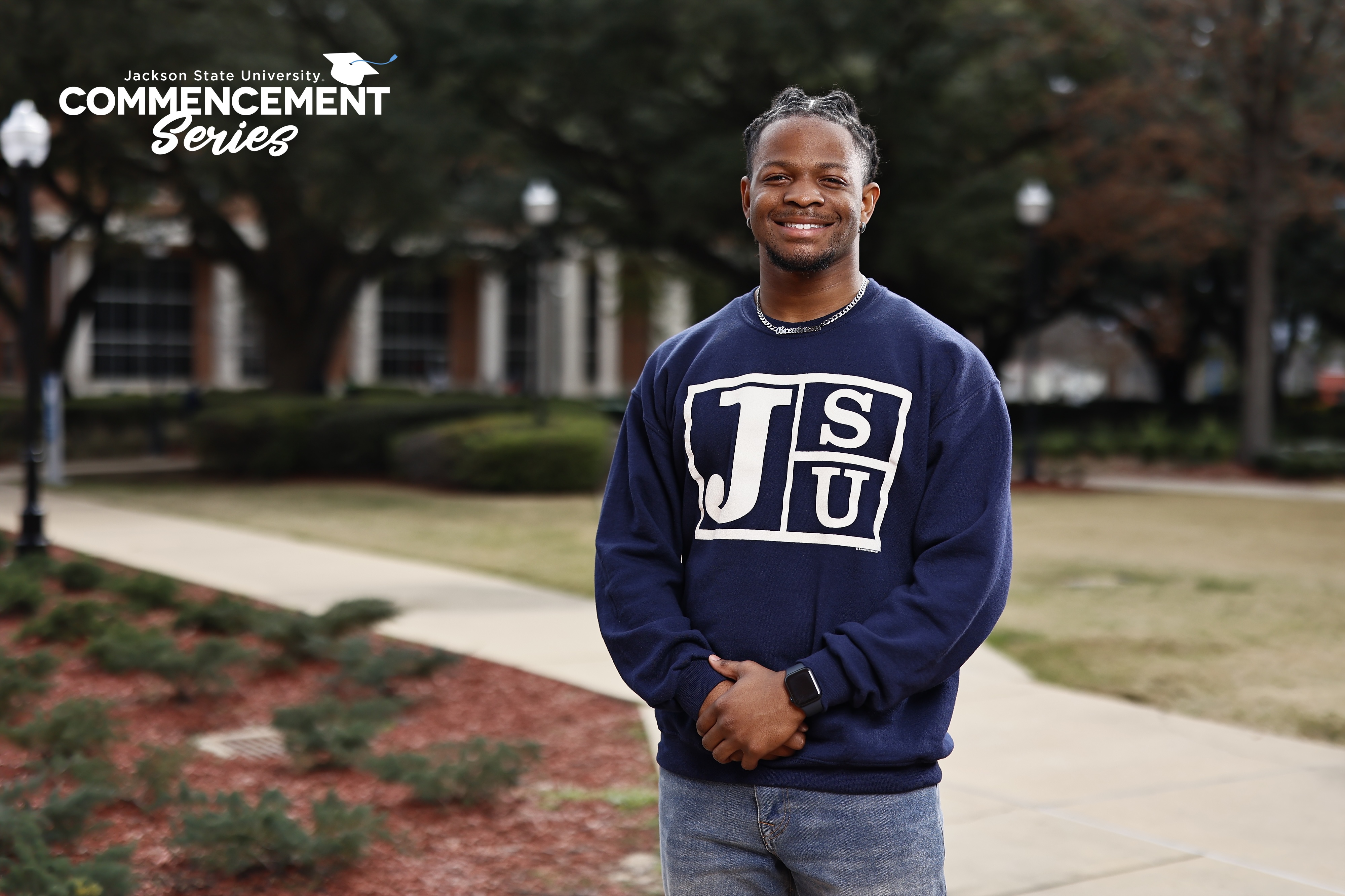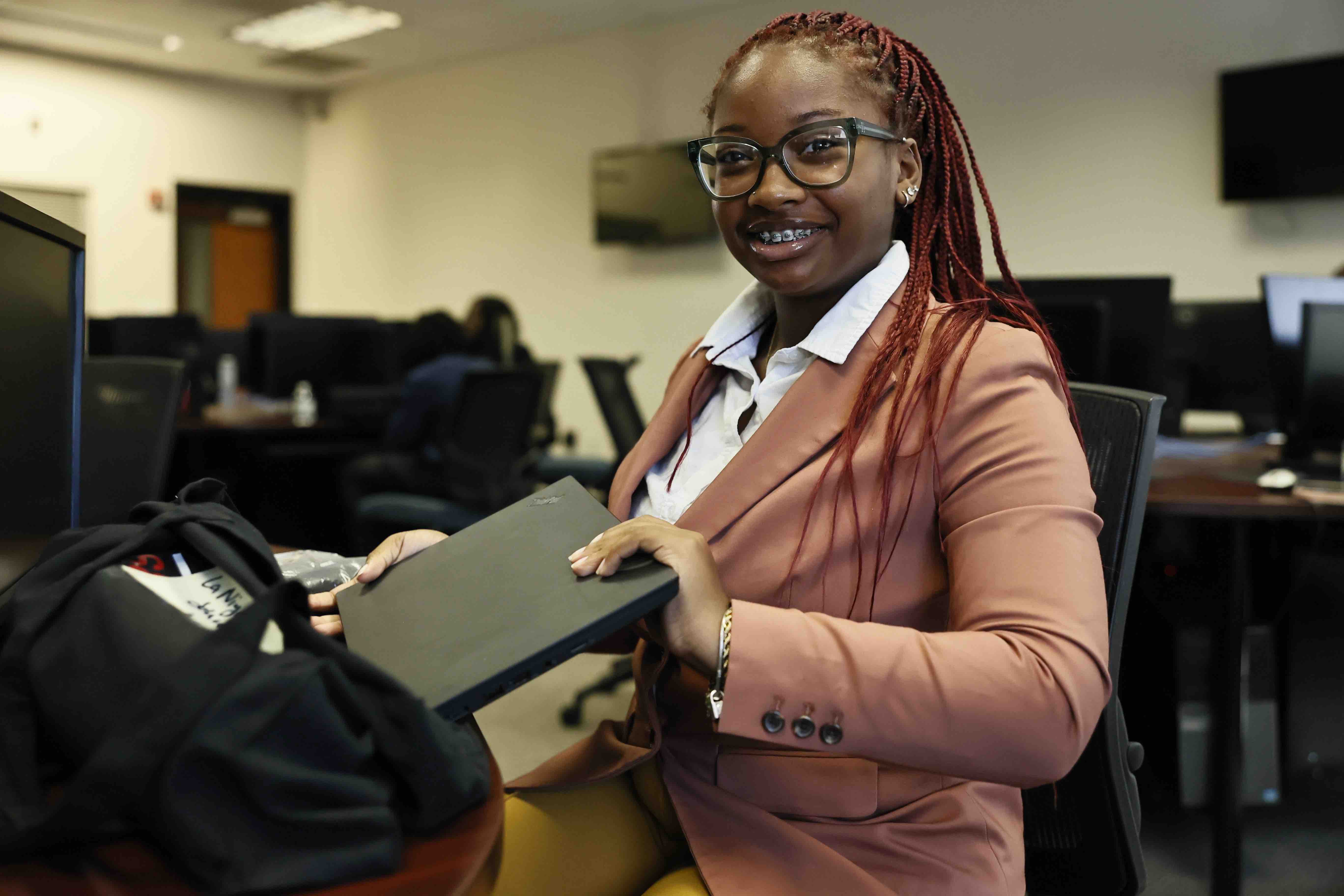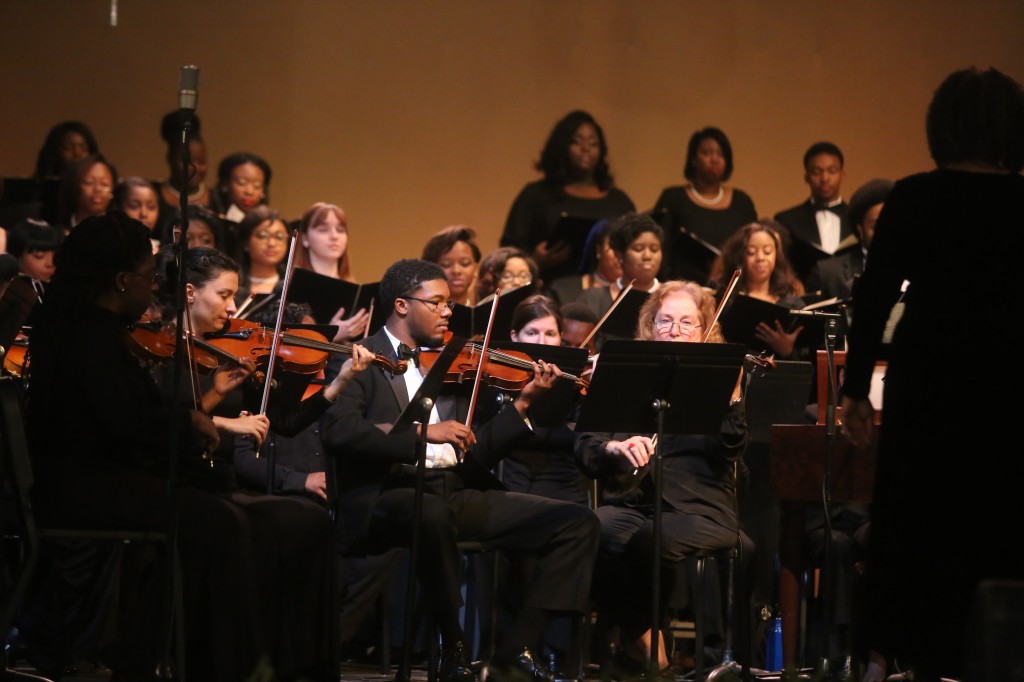
![]() Because the rich sound of the Sonic Boom of the South is a reflection of its symphonic and concert bands, Jackson State University is partnering with the HBCU National Band Directors Consortium to persuade other institutions to expand their repertoire of music beyond their marching program.
Because the rich sound of the Sonic Boom of the South is a reflection of its symphonic and concert bands, Jackson State University is partnering with the HBCU National Band Directors Consortium to persuade other institutions to expand their repertoire of music beyond their marching program.
At its 12th annual meeting this week in Atlanta, the consortium – with JSU – is again calling on presidents and bandleaders of HBCUs to better prepare music students and future instructors by embracing “full instrumentation.” They say broader programs should include concert and orchestra performances with instruments such as strings (violin and cello) and pitched percussion (bells, marimba, xylophone and chimes).
“Ninety percent of HBCUs don’t have full concert programs,” said O’Neill Sanford, JSU’s director of bands and founder of the HBCU consortium. The organization was formed in Georgia in 2004.
Marching to different drummer
JSU isn’t just talking the talk. Rather, it’s walking the walk. Or, more specifically, it’s marching to the beat of a different drummer. The university’s symphonic band will perform at 7 tonight in the Westin hotel in Atlanta, where hundreds will gather to see why the Department of Music at Jackson State is internationally acclaimed.
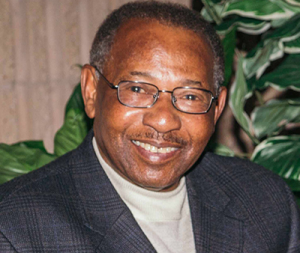
JSU’s wind ensemble, conducted by concert virtuoso Lowell Hollinger, was selected from among all other HBCUs to deliver the opening performance for the conference. JSU’s provost and senior vice president for Academic and Student Affairs, Dr. Evelyn Leggette, will introduce the band.
The symphonic band is the premier performance ensemble of JSU’s musical program, consisting of 80 talented students from various educational disciplines. It performs a wide range of orchestral arrangements and original compositions that represent various styles and periods of the 19th and 20th centuries. All students must pass an audition for membership.
Sanford, a graduate of Southern University in Baton Rouge, another HBCU, said the consortium is a way for him to “pay it forward,” given his half-century of experience as a bandleader. Before coming to JSU, he had worked as a conductor for several mainstream institutions from the Big 10 to the Big East, where he says he was their first and only black music conductor. He has served as band director at institutions in Minnesota and Pennsylvania.
Back to his roots
Sanford eventually decided to take a break to care for his aging parents. Later, after he had been absent from HBCUs about 20 years, he eventually resurfaced. He accepted a job at Norfolk State University in Virginia. Two years later, he said he realized HBCUs were experiencing a dearth of symphonic talent and experience, unlike other premier institutions that expose their students to numerous clinics and workshops.
As a result, he organized a board, which ultimately gave birth to the HBCU National Directors Consortium, for which he is executive director and president.
Today, there are 53 member institutions, and each collaborates to develop strategic plans for building successful instrumental musical programs. Also, convention participants are able to evaluate performances, and band directors and students get to attend workshops and clinics to help polish their skills.
Other JSU staffers attending the HBCU consortium include:
- Dr. David Akombo, interim chair of the Department of Music
- Dr. Lisa Beckley-Roberts, associate professor of music, who will play several selections on the harp
- Dr. London Branch, adjunct conductor of the string ensemble
- Chan Leggette, assistant band director, instructor of music
- Dr. Harlan Zackary, orchestra director
Garnering financial support
Slowly, but surely, the consortium is becoming ever more substantive, garnering financial support from key donors, including a $25,000 sponsorship from Indiana’s Conn-Selmer Musical Instrument Co. and $5,000 annually over the past five years from the Honda Battle of the Bands.
Sanford said, “Another plus is that I’m fortunate to be director of bands where there’s administrative support.” He credits JSU President Carolyn W. Meyers, whom he said once played the violin, with understanding the need for building a strong musical program. “Dr. Meyers knows the relevance of a concert band.”
Now, Sanford is urging administrators at other HBCUs to become more involved with their own musical programs, too, so that their students, faculty and aspiring band leaders can flourish.
“HBCUs are probably 40 years behind where they need to be in their musical programs compared to mainstream institutions,” Sanford said. “The success of JSU’s marching band is really based on how good our concert band is. We want the world to know that our musical department is more than just the Sonic Boom of the South.”



